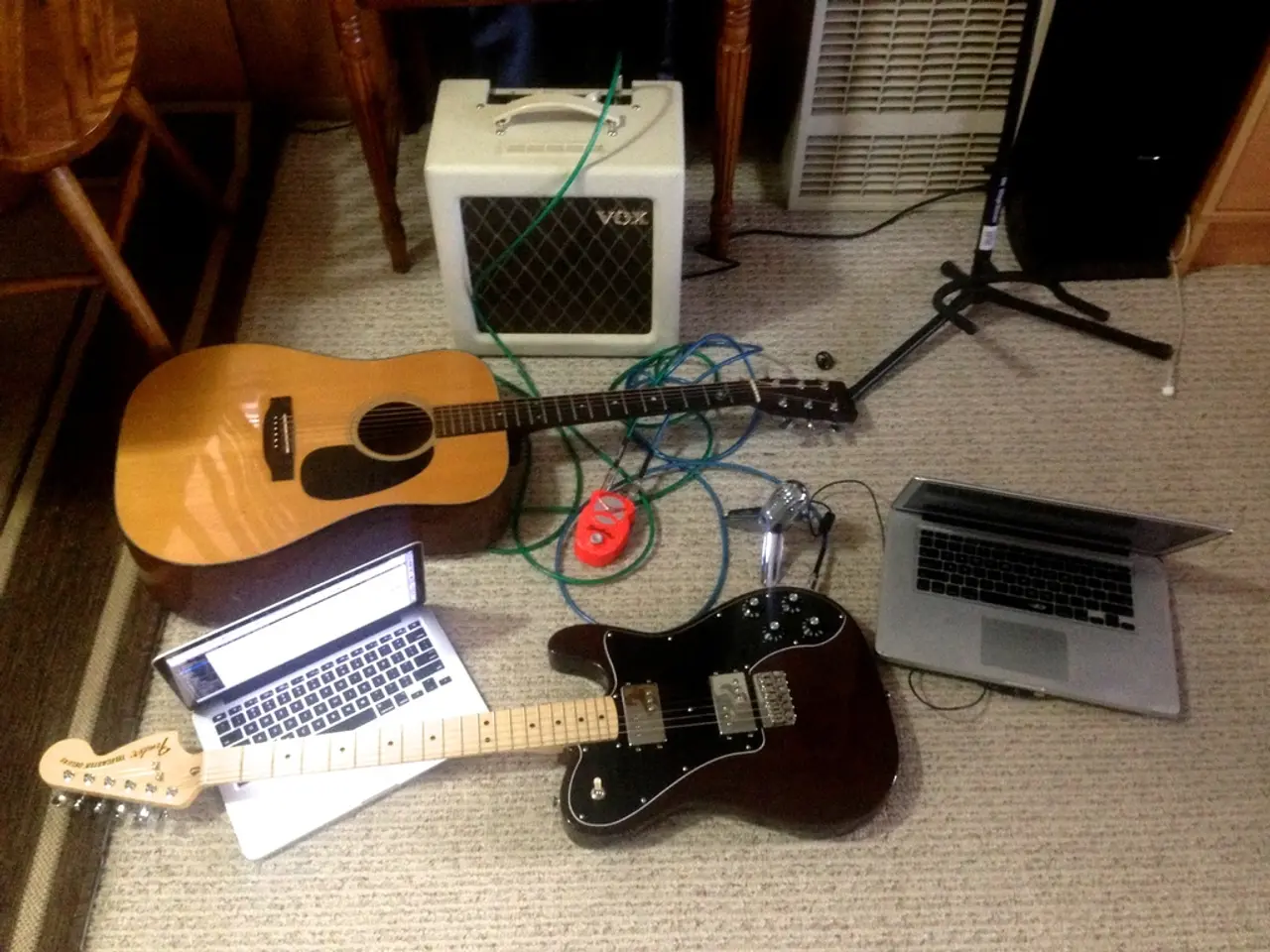Online Surveillance by UK Police for Internet Speech | National Internet Intelligence Investigations Unit Established
Unprecedented Online Surveillance: The National Internet Intelligence Investigations Team
In the heart of Westminster, a new elite police unit has taken shape - the National Internet Intelligence Investigations team (NIIIT), tasked with monitoring social media to identify and address threats, primarily focusing on anti-migrant posts and potential signs of civil unrest [1][3]. Operating out of the National Police Coordination Centre (NPoCC), the team is at the forefront of a wave of digital policing in the UK.
The NIIIT's inception was prompted by recommendations from the Commons Home Affairs Committee and His Majesty's Inspectorate of Constabulary and Fire & Rescue Services, urging a nationally coordinated social media monitoring capability [1]. Established in mid-2025, the unit initially received funding until 2026, with future continuation contingent on government priorities [1].
The team's mission is twofold. Firstly, to provide a nationally coordinated strategic capability to monitor social media intelligence in real-time and advise police forces on its operational use to prevent and manage public safety threats before they escalate [1]. Secondly, to focus on preventing violence, such as knife crime, violence against women, theft, antisocial behavior, and monitoring content that may incite anti-migrant sentiment and possible communal disorder during times of heightened social tensions [1][3].
However, the creation of the NIIIT has sparked significant concerns about free speech and civil liberties. Critics warn that it may lead to censorship and political policing of dissenting views, particularly on migration and related social policies [2]. The unit's surveillance role in social media has raised debates about balancing public safety and community protection against the risk of government overreach into lawful freedom of expression and political activism [2].
Critics such as Nigel Farage, the Reform Party leader, have expressed concern about the government's control over free speech [4]. Furthermore, incidents such as Essex Police sending officers to the home of journalist Allison Pearson over something she posted online [5] and a mother named Lucy Connolly receiving a prison sentence longer than some violent offenders after sharing a message deemed offensive [6] have fueled these concerns.
Meanwhile, protests over immigration have been occurring in various UK cities, such as Norwich and Bournemouth [7]. Interestingly, users have discovered that protest videos involving asylum hotels are mysteriously unavailable in the UK [8]. The NIIIT's operations could potentially include stalking Instagram stories and dispatching undercover agents to Nextdoor forums [8].
The Online Safety Act, recently come into force in the UK, aims to regulate the internet, raising concerns that it could make the UK a digital kindergarten, where only soft voices and pre-approved opinions are allowed [9]. Shadow Home Secretary Chris Philp has criticized the government's actions, stating that they are trying to police opinions instead of the streets [2].
In conclusion, the NIIIT is a government-backed police team formed in 2025 to monitor social media for threats, including anti-migrant rhetoric, aiming to prevent unrest and violence. However, it has also sparked significant free speech and civil liberties concerns due to its potential for suppressing dissent and expanding policing powers online [1][2][3].
References:
- BBC News (2025). UK launches National Internet Intelligence Investigations team. [online] Available at: https://www.bbc.co.uk/news/uk-57651771
- The Guardian (2025). National Internet Intelligence Investigations team: the police force policing the internet. [online] Available at: https://www.theguardian.com/technology/2025/jul/01/national-internet-intelligence-investigations-team-the-police-force-policing-the-internet
- Sky News (2025). UK police to monitor social media for anti-migrant sentiment. [online] Available at: https://news.sky.com/story/uk-police-to-monitor-social-media-for-anti-migrant-sentiment-12457311
- The Telegraph (2025). Nigel Farage slams government over internet surveillance. [online] Available at: https://www.telegraph.co.uk/news/2025/07/02/nigel-farage-slams-government-internet-surveillance/
- The Independent (2025). Journalist Allison Pearson visits by Essex Police over social media post. [online] Available at: https://www.independent.co.uk/news/uk/home-news/allison-pearson-essex-police-social-media-post-b1951022.html
- The Mirror (2025). Mother jailed for longer than violent offenders over Facebook post. [online] Available at: https://www.mirror.co.uk/news/uk-news/mother-jailed-longer-violent-offenders-26528696
- The Times (2025). Protests over immigration sweep across the UK. [online] Available at: https://www.thetimes.co.uk/article/protests-over-immigration-sweep-across-the-uk-9qk3k67jx
- The Sun (2025). UK police censoring protest videos about asylum hotels. [online] Available at: https://www.thesun.co.uk/news/17173333/uk-police-censoring-protest-videos-asylum-hotels/
- The Daily Mail (2025). The Online Safety Act: Turning the UK into a digital kindergarten. [online] Available at: https://www.dailymail.co.uk/news/article-10874829/The-Online-Safety-Act-Turning-UK-digital-kindergarten.html
- The NIIIT's surveillance of social media has brought concerns about the balance between maintaining public safety and preserving free speech, including in the context of discussions on controversial topics like migration and politics.
- Critics argue that the unit's operations may voices that do not align with government priorities, leading to a potential increase in censorship.
- In some cases, individuals have raised concerns about government interference in their online activities, such as when journalists or ordinary citizens faced police visits or legal repercussions for their posts.
- Amidst these debates, ongoing surveys of social media activity may raise questions regarding privacy and the potential for overreach into private matters, especially when it comes to topics like sports, weather, casino-and-gambling, or even a simple discussion about local sports events or weather conditions.




